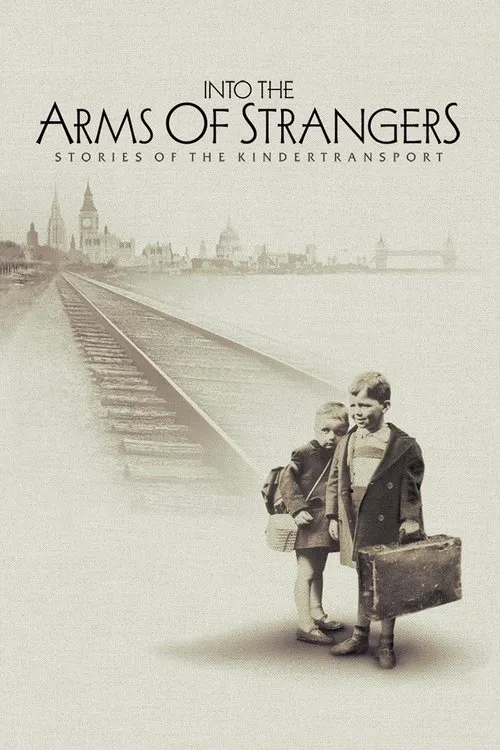Into the Arms of Strangers: Stories of the Kindertransport

Plot
The documentary-style film "Into the Arms of Strangers: Stories of the Kindertransport" is a poignant and thought-provoking historical account of the little-known events surrounding the Kindertransport, a rescue mission undertaken by the British government in the months preceding World War II. The film is a powerful tribute to the 10,000 Jewish children who, in search of safety, left behind their families, homes, and the comfort of a traditional childhood to embark on a perilous journey to a foreign land. Directed by Mark Jonathan Harris, the film takes its viewers on an emotional journey as it delves into the personal stories of the children who participated in the Kindertransport. Through heart-wrenching interviews with the survivors, who are now adults, the film brings to life the anguish, the fear, and the trauma that these young people endured during their ordeal. The film also incorporates archival footage, images, and interviews with individuals who played a key role in the organization and implementation of the rescue mission. The film begins with a series of scenes depicting life in pre-war Germany and Austria, where Jewish families lived in fear of the growing Nazi threat. The atmosphere is tense and foreboding, with scenes of Kristallnacht, the infamous Kristallnacht or "Night of Broken Glass," where Jewish synagogues, homes, and businesses were systematically destroyed. The brutal and violent scenes serve as a stark reminder of the hatred and intolerance that pervaded Nazi Germany. As the Nazi regime continued to tighten its grip on Jewish communities, the need for a rescue mission became increasingly urgent. In September 1938, the British government, under the leadership of Neville Chamberlain, passed the Kindertransport Act, which allowed for the evacuation of Jewish children from Germany and Austria to the United Kingdom. The act marked a rare instance of humanity amidst the chaos and destruction that characterized the pre-war period. The story of the Kindertransport is a remarkable example of the resilience of the human spirit. The film highlights the efforts of individuals, organizations, and governments that came together to facilitate the rescue mission. One such individual is Sir Nicholas Winton, a British stockbroker who was instrumental in organizing the evacuation of Czechoslovakian children. Winton's tireless work, which included setting up a network of volunteers and finding homes for the children, is a testament to the power of individual action. Meanwhile, the children, ranging in age from infancy to adolescence, were forced to leave behind their families, often with just a few hours' notice. The scenes depicting the children's departure from Germany and Austria are heart-wrenching, with images of crying children being led away from their terrified parents, unsure of when or if they would ever see their families again. The children's journey to Britain was a long and arduous one, often taking several days or even weeks. They traveled by train, ship, or on foot, facing many challenges along the way, including harsh weather conditions and the constant threat of Nazi patrols. The scenes of the children's arrival in Britain, where they were met with tears, uncertainty, and a mix of emotions, are particularly poignant. Once in Britain, the children were taken in by foster families or placed in temporary care homes. Many of the children struggled to adjust to their new surroundings, often facing language barriers, cultural differences, and the trauma of their experiences. However, with the help of their new caregivers and the support of the British government, many of the children eventually found a sense of belonging and stability. The film also delves into the complex emotions that the children experienced during and after their ordeal. Many of the survivors struggled to come to terms with the trauma they endured, often experiencing anxiety, depression, and even PTSD. However, with time and support, many of the children were able to rebuild their lives, form new families, and find happiness in their adopted homeland. "Into the Arms of Strangers" is a powerful and moving tribute to the Kindertransport and the bravery of the children who participated in this remarkable rescue mission. The film serves as a reminder of the importance of compassion, tolerance, and humanitarian action in the face of adversity. As one of the survivors notes in the film, "It's not just a story of a child who was saved; it's a story of a community that came together to help." Through its masterful use of archival footage, interviews, and heart-wrenching personal stories, "Into the Arms of Strangers" sheds light on a largely forgotten chapter in history, reminding us of the importance of remembering and learning from the past. The film is a poignant reminder that, even in the darkest of times, there is always hope, always the possibility for humans to come together and act with kindness and compassion.
Reviews
Recommendations




